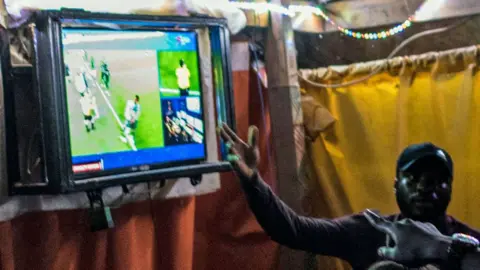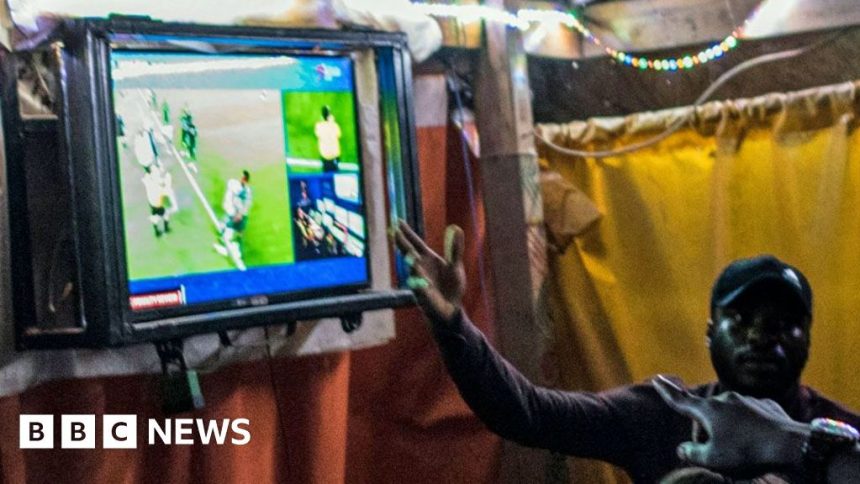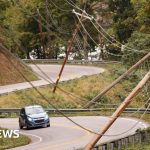Islamic police raid betting shops in northern Nigeria
 AFP
AFPIslamic police in Nigeria’s northern city of Kano have started closing down sports betting shops, which they say are operating illegally.
“As you know betting is forbidden in Islam,” Mujahid Aminudeen, deputy chief of the Sharia police force, known as the Hisbah, told the BBC.
The crackdown was prompted by complaints from community leaders and parents, worried about the growing number of gambling addicts, he said.
On the first day of raids, 30 shops were closed in one suburb alone and their owners sent home with a warning, the Sharia officer said.
But Mr Aminudeen warned that now that the public was aware that the Hisbah was clamping down on gambling, those flouting the rules would be arrested.
Kano city is the capital of Kano state, which has a majority Muslim population and operates the Islamic legal system – Sharia – alongside secular law.
- A football fan explores the dark side of sports betting in Africa
- Big winners, big losers: Kenya’s addiction to gambling
Bookmakers and bars tend to be allowed to operate in Kano’s Christian neighbourhoods, though they too can face action if the Hisbah thinks Muslims are frequenting them.
However, the current crackdown is focused on Muslim areas of Kano, a sprawling city and the economic hub of northern Nigeria.
Sports betting shops can be found all over the city – most have televisions screens with customers watching the outcome of international football matches or horse races on which they have staked money.
Mr Aminudeen said such bookmakers had been able to operate under the radar as they had opened under false pretences.
“They don’t have licences to operate as they were given permission to run video games centres, which they later converted to betting shops,” he said.
The sports betting industry has expanded dramatically in recent years across the West African nation, which is roughly divided between a mainly Muslim north and a largely Christian south.
Many people go to bookmakers – to enjoy the camaraderie of other gamblers – though mobile apps are also popular to wager on the outcome of events and teams.
Nigeria’s crippling economic crisis has also meant people are willing to risk a small amount in the hope of winning big.
But this had led to widespread addiction and parents were even complaining that children were dropping out of school to gamble, Mr Aminudeen said.
“These economic issues we are facing in Nigeria is God telling us to change our ways by stopping sins,” he said.
The raids on Tuesday had focused on Munjibir, considered a resort area in the north-east of the city – with visitors flocking there at weekends.
“I am advising those running those betting shops to either shut down or we’ll arrest them and take them to [a Sharia] court,” Mr Aminudeen said.
It is not clear what punishment they would face – often such infringements carry a fine.
Sharia was introduced in Kano in 2000 – as it was in 11 other Muslim-majority northern states – and prostitution, gambling and the consumption of alcohol were banned.
More Nigeria stories from the BBC:
 Getty Images/BBC
Getty Images/BBCGo to BBCAfrica.com for more news from the African continent.
Follow us on Twitter @BBCAfrica, on Facebook at BBC Africa or on Instagram at bbcafrica







